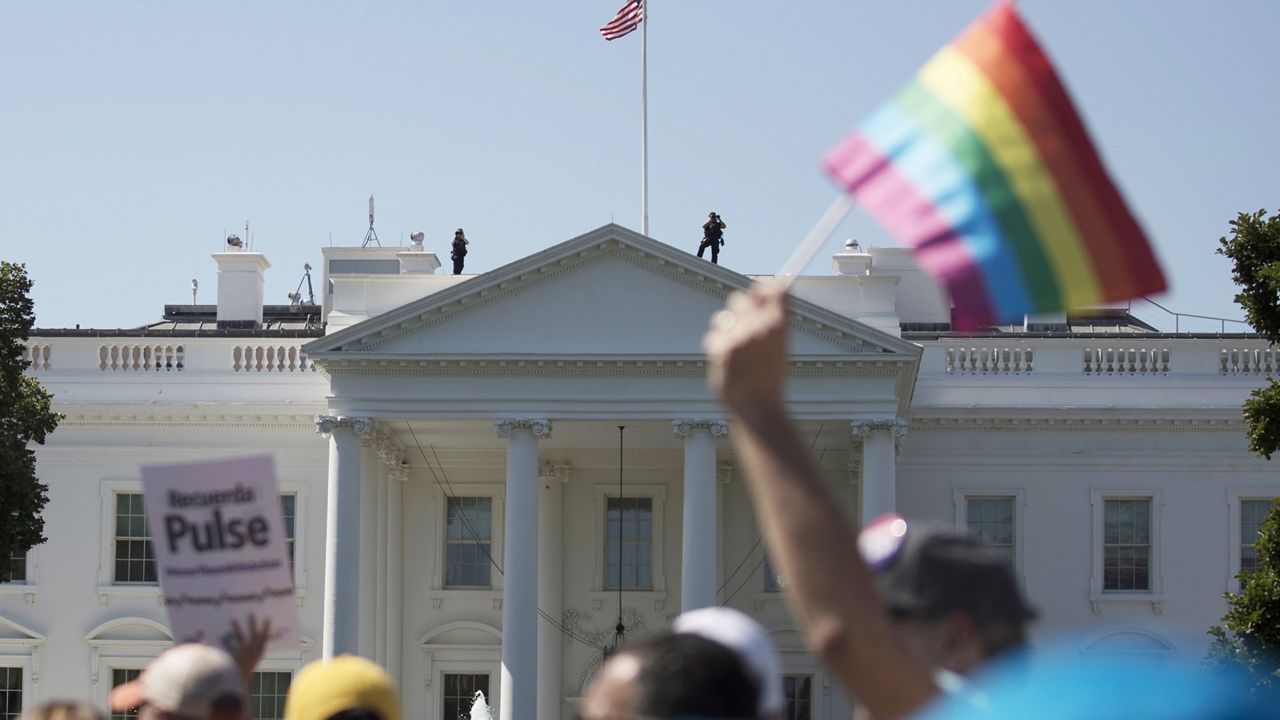The Biden administration announced Monday that the United States will provide protections for gay and transgender Americans against sex discrimination in health care, reversing a Trump-era policy which sought to narrow the scope of legal rights in sensitive situations involving medical care.
“Fear of discrimination can lead individuals to forgo care, which can have serious negative health consequences,” Health and Human Services Secretary Xavier Becerra said in a statement. “Everyone – including LGBTQ people – should be able to access health care, free from discrimination or interference, period.”
The Trump administration sought to define "sex" as gender assigned at birth, which excluded them from protections under federal law which forbid discrimination on the basis of sex. The Affordable Care Act included a prohibition on sex discrimination in health care and the Obama administration had interpreted that to apply to gay and transgender people as well.
Becerra said the Biden administration policy will bring HHS into line with Bostock v. Clayton County, the landmark Supreme Court decision last year, which determined that protections from Title VII of the Civil Rights Act extend to protecting employees that are gay or transgender from discrimination.
Secretary Becerra said that “the Supreme Court has made clear that people have a right not to be discriminated against on the basis of sex and receive equal treatment under the law, no matter their gender identity or sexual orientation."
Despite that ruling, the Trump administration proceeded to try to narrow the legal protections against health care discrimination, issuing rules that narrowly defined “sex” as biological gender. A federal judge had blocked those rules from taking effect, although Trump administration officials argued that as a legal matter health care discrimination was a separate issue from the employment case the Supreme Court decided.
“The mission of our Department is to enhance the health and well-being of all Americans, no matter their gender identity or sexual orientation. All people need access to healthcare services to fix a broken bone, protect their heart health, and screen for cancer risk,” said Dr. Rachel Levine, Assistant Secretary for Health, the first openly transgender person to be confirmed by the Senate. “No one should be discriminated against when seeking medical services because of who they are.”
Behind the dispute over rights for transgender people in particular is a medically recognized condition called “gender dysphoria” — discomfort or distress caused by a discrepancy between the gender that a person identifies as and the gender assigned at birth. Consequences can include severe depression. Treatment can range from gender confirmation surgery and hormones to people changing their outward appearance by adopting a different hairstyle or clothing.
Under the Obama-era rule, a hospital could be required to perform gender-transition procedures such as hysterectomies if the facility provided that kind of treatment for other medical conditions.
LGBTQ groups say explicit protections are needed for people seeking gender transition treatment, and even for transgender people who need care for illnesses such as diabetes or heart problems.
More than 1.5 million Americans identify as transgender, according to the Williams Institute, a think tank focusing on LGBT policy at the UCLA School of Law. A bigger number — 4.5% of the population— identify as lesbian, gay, bisexual or transgender, according to Gallup.
Professional groups like the American Medical Association, along with civil rights organizations, have supported health care protections for gay and transgender people, while social and religious conservatives sought to narrow their scope.
HHS is a traditional battleground for conflicts over social issues. During the Trump administration the department clearly bent to the will of conservatives. Other Trump policies applauded by the right restricted abortion referrals and broadened employers’ ability to opt out of providing birth control to women workers covered by their health plans. Under Biden, the policy pendulum has been swinging back in the opposite direction, as officials unwind actions taken in the Trump years.
One of Biden’s first steps after taking office was a Jan. 20 executive order on combating discrimination on the basis of gender identity or sexual orientation. The new president directed every executive branch agency to examine what it could do to combat such discrimination.
Biden quickly followed that up with another order reversing a Trump-era Pentagon policy that largely barred transgender individuals from serving in the military.
And earlier this spring, the Department of Housing and Urban Development withdrew a Trump policy that would have allowed taxpayer-funded homeless shelters to deny access to transgender people.
The Associated Press contributed to this report.



